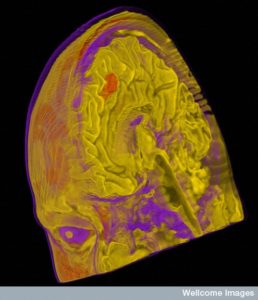 Both elderly and children appear to have a higher incidence of cognitive brain problems after even routine surgery. It has been considered that both have delicate blood flow to regions in between the large vessels. These are called watershed regions. It has been postulated that not being able to guarantee perfectly even oxygen during anesthesia to these regions might be causing these problems. But, this mechanism has not been proven. Recent studies with children after surgery show inconsistent findings—one implying a higher incidence of cognitive brain problems.
Both elderly and children appear to have a higher incidence of cognitive brain problems after even routine surgery. It has been considered that both have delicate blood flow to regions in between the large vessels. These are called watershed regions. It has been postulated that not being able to guarantee perfectly even oxygen during anesthesia to these regions might be causing these problems. But, this mechanism has not been proven. Recent studies with children after surgery show inconsistent findings—one implying a higher incidence of cognitive brain problems.
In the elderly there are no exact studies because of problems performing them, but the percentage of those with mental changes after surgery is great—some considered a reversible delirium and some small regions where a lack of oxygen causes very small microscopic strokes that cannot be seen on MRIs. There is no question that there is a greater amount in the elderly, but the reasons have not been clear. It may not be from loss of oxygen, but rather signals from parts of the body related to inflammation after a physical assault might be altering the brain.
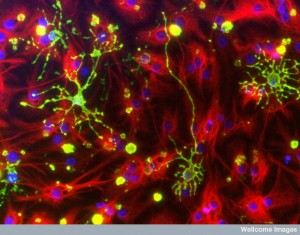 Very recent research questions whether the immune system is involved in a reaction to surgery across the entire body that can cause these cognitive changes. Immune responses might occur as it would respond to any physical assault with even after uncomplicated surgery. Many posts have shown the extreme amount of communication that occurs between brain cells and immune cells.
Very recent research questions whether the immune system is involved in a reaction to surgery across the entire body that can cause these cognitive changes. Immune responses might occur as it would respond to any physical assault with even after uncomplicated surgery. Many posts have shown the extreme amount of communication that occurs between brain cells and immune cells.
Thirty years ago, when I edited the newsletter of the American Association for Geriatric Psychiatry, I ran a column “He/she was never the same after surgery” to highlight this issue. Little has changed in the past three decades. We still do not understand the temporary mental changes called delirium that actually are the most common brain disease and the least understood. It occurs after medications, illness, and surgery. This post discusses some recent thoughts and research on the question of cognitive loss after surgery.
Mental Changes After Surgery and Medical Illness
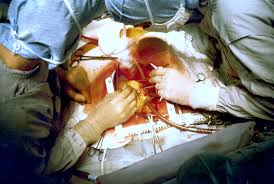 The extremely common and little understood brain changes after surgery or illness includes confusion, delusions, and hallucinations. This is most often temporary, but might last hours, days, weeks, or even months. But, the more serious problems are those that develop cognitive problems and never recover. This can be quite subtle, but life changing. These include memory loss and lack of ability to concentrate that can last for years or be permanent. One study showed that if this cognitive loss lasts for three months after the hospitalization then they are two times more likely to die within the next year when compared with those who have no memory changes.
The extremely common and little understood brain changes after surgery or illness includes confusion, delusions, and hallucinations. This is most often temporary, but might last hours, days, weeks, or even months. But, the more serious problems are those that develop cognitive problems and never recover. This can be quite subtle, but life changing. These include memory loss and lack of ability to concentrate that can last for years or be permanent. One study showed that if this cognitive loss lasts for three months after the hospitalization then they are two times more likely to die within the next year when compared with those who have no memory changes.
It is not possible to exactly study this question because you cannot choose two groups and compare them. It is not known who will develop the memory issues and by then it is too late to study. Many physicians do not believe it is related to surgery and anesthesia at all. But, increasingly it is apparent that it is a significant problem. The first papers with cases were in 1955 in the Lancet. A study in the New England Journal of Medicine in 2001 showed that after heart bypass surgery to unclog vessels in the heart, that almost half of the patients were mentally impaired five years after the surgery. Again, this was not a comparative study or double blind since that is impossible so many ignored the results. But, because of the study, more surgery was done without a heart lung bypass machine—off pump surgery. But, this didn’t change the statistic either. In fact, it is hard to define the cognitive loss and studies use different criterion and vary from 10% to 50%.
 The most current research is related to inflammation of the brain as a cause of this problem. Many posts have shown how complex this is. It was thought that there were no immune cells in the brain. Now it is known that at least 500,000 T cells are in the CSF at any point (see posts on T cells in the brain and T cells normal effects on cognition.) The most recent posts described the many types of T cells in the brain and the many cytokine immune signals in the brain.
The most current research is related to inflammation of the brain as a cause of this problem. Many posts have shown how complex this is. It was thought that there were no immune cells in the brain. Now it is known that at least 500,000 T cells are in the CSF at any point (see posts on T cells in the brain and T cells normal effects on cognition.) The most recent posts described the many types of T cells in the brain and the many cytokine immune signals in the brain.
One post notes the key signaling between the T cells and the brain such as triggering the “sick feeling” when we have an infection. The immune system tells the brain when to shut down when we need to heal. It also signals the brain to start up normally when better. Another set of signals are related to stress, which affects the production of new neurons in the memory centers. These go up for brief stress of learning and down for chronic stress and depression.
Other studies involve mental preparation for surgery, alterations of operating room procedures and many different medications. The types of surgeries appear to matter with heart being the worst. Some surgeries seem to increase cognition—bariatric surgery shows improvements lasting years.
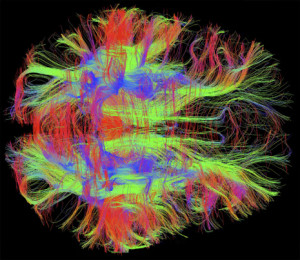 Another confusing study in Minnesota looked at people who have had surgery in the past and found no major correlation with minor cognitive impairment (MCI). But, one is Oregon did find loss. A twin study in Denmark found a small significant difference for those with and without surgery.
Another confusing study in Minnesota looked at people who have had surgery in the past and found no major correlation with minor cognitive impairment (MCI). But, one is Oregon did find loss. A twin study in Denmark found a small significant difference for those with and without surgery.
One big problem is that people who need surgery are ill and that affects the brain. Right now some prospective studies are ongoing before and after knee surgery.
Causes of Brain Problems After Surgery
 Does anesthesia affect the brain as it can kill neurons in cultures and produce abnormal brain development in the fetus. But, those who have local and spinal anesthesia also have these same problems. Angioplasty with local anesthesia also affects the brain it seems. Reduced blood flow might hurt also.
Does anesthesia affect the brain as it can kill neurons in cultures and produce abnormal brain development in the fetus. But, those who have local and spinal anesthesia also have these same problems. Angioplasty with local anesthesia also affects the brain it seems. Reduced blood flow might hurt also.
What about the physical trauma of the surgery itself? Kidneys are affected by the assault. If they damage other organs they could damage the brain. Now a consideration is a body wide inflammation. In the elderly this then affects the brain. Animal studies showed that microglia were involved and removal helped mice think better. a drug to kill microglia, mice responded better to the surgery with less memory issues.
A human study of before and after prostate surgery with PED scan showed altered microglia activity months later. This demonstrated an immune problem in the brain afer the surgery. The inflammation might contribute to the delirium as well. It appeared that delirium and the cognitive loss were related to each other and to inflammation. One study showed that anti inflammatory medication cyclooxygenase inhibitors decreased the amount of delirium. The problem with these is they are dangerous after surgery. Another approach is the vagus nerve that mediates immune function and can prevent this cognitive affect.
The Brain After Surgery
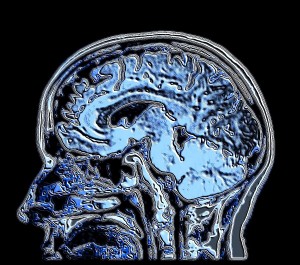 There is no doubt that cognitive impairment, either temporary or permanent, occurs after many surgeries. There is also no doubt that the immune system is very active in signaling for both normal and abnormal brain functions.
There is no doubt that cognitive impairment, either temporary or permanent, occurs after many surgeries. There is also no doubt that the immune system is very active in signaling for both normal and abnormal brain functions.
When we become ill with an infection, T cells send signals to produce the “sick feeling” which alters our cognition and forces us to rest in order to heal. Also, T cells stimulate and inhibit new brain cells in memory centers with short term and long term stress. Therefore, it is quite reasonable to interpret the new research as showing that immune signaling is involved in the cognitive changes after an assault such as surgery. Hopefully, this type of research will find the cellular conversations related to the terrible and very common disease called delirium. Understanding these signals might lead to treatment for this terrible disease.